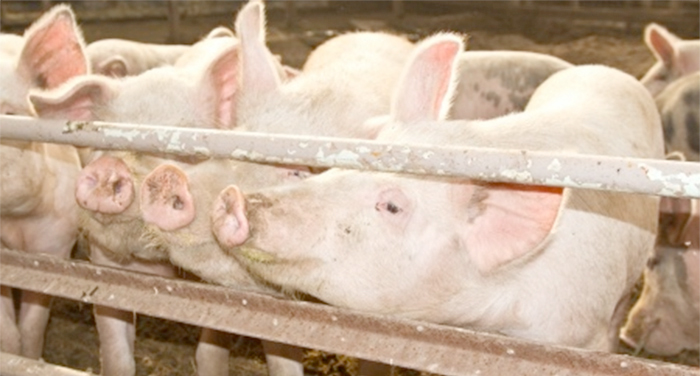
"We're going to hear a lot about the MCR-1 gene this year", according to the National Pig Association. "It's been found in virulent strains of E-coli and Salmonella and it's resistant to the decades-old antibiotic colistin."
Forty years ago, colistin was hardly used in human medicine any more, as newer, less toxic and better-researched antibiotics became available. So nobody minded at all that it was still used on farms.
But as resistance has built up in newer antimicrobials, colistin has been elevated to last-line antibiotic in humans, to be used only when other treatments have failed.
Its use in people is increasing rapidly, as non-resistant alternatives become harder to find.
So news that a resistant gene, MCR-1, has been found in farm animals and can spread to humans has sent shockwaves around the world.
It is known that the gene is present in China, where it was discovered, also Denmark, the Netherlands and Britain. Inevitably it will be found elsewhere as health departments in other countries start to look for it more assiduously on farms, and in people.
So suddenly the spotlight is on the world's farmers and vets, who are being accused of deploying the drug irresponsibly.
Colistin is not much used on British farms these days, but this isn't always made clear in news coverage, so British pig-keepers are in danger of being tainted by association.
NPA will likely spend the year ahead explaining colistin accounts for less than two percent of United Kingdom antibiotic use in livestock.
It will stress that in any case, drug companies and vets have recently agreed a moratorium in this country, on its use in farm animals, except in the most intractable cases.
"So as an industry we have little to be defensive about where colistin is concerned. Not in this country, at any rate. But maybe that doesn't stop us feeling defensive, which is never a good place to be when trying to influence public opinion", said the NPA.
